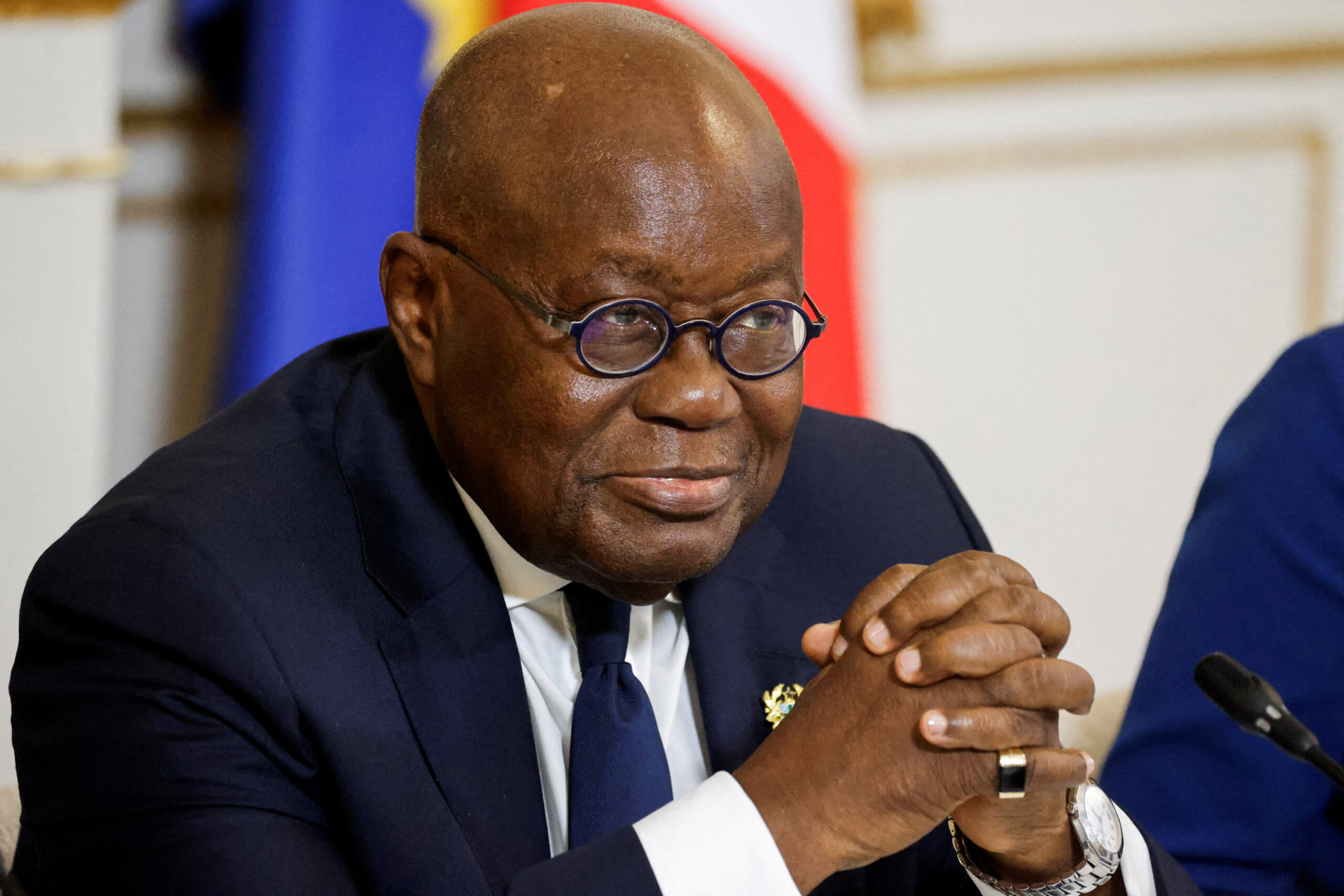
Ghana’s debt restructuring progresses much farther
On Monday, Ghana’s protracted debt restructuring made progress toward its goal when the government announced that it had reached a preliminary deal on a debt restructuring with the holders of approximately $13 billion in foreign bonds.
Here is a summary chronology of significant occasions:
- February 2022: Following Fitch’s downgrading of Ghana’s credit rating from B to B- in January, credit rating company Moody’s downgrades the country’s credit rating from B3 to Caa1, citing a “very high credit risk”.
- March 2022: In an attempt to halt rapidly rising inflation and a declining value of the cedi, Ghana’s central bank raises interest rates by a record 250 basis points to 17%.
- The parliament of the country that produces cocoa approves a “e-levy” tax on electronic payments in April 2022.
- May 2022: Without assistance from the International Monetary Fund (IMF), Ghana would handle its debt, according to then-finance minister Ken Ofori-Atta.
- July 1, 2022 – Amid mounting protests against economic hardship, Ghana’s government reverses course and requests a loan from the IMF.
- July 20, 2022: In a desperate attempt to stay out of default, Ghana’s parliament agrees a $750 million loan from the African Export Import Bank.
- August 2022: As inflation keeps rising, Ghana’s central bank announces yet another record interest rate hike.
- Ghana starts a domestic debt exchange on December 5, 2022, in an effort to address its rapidly increasing debt payments.
- December 12, 2022: A “staff-level agreement” is reached between Ghana and the IMF on a $3 billion rescue plan, with debt restructuring being one of the requirements.
- Ghana claims it will default on the majority of its external debt on December 20, 2022.
- December 22, 2022: Following union threats of a nationwide strike, local pension funds are released from the domestic debt exchange.
- January 2023: China, India, and other creditor nations not included in the traditional Paris Club of wealthy lending nations are included in Ghana’s request for a debt restructuring made through the G20’s Common Framework framework, which was established in response to the COVID-19 epidemic.
- February 2023: Following five deadline extensions, the domestic debt exchange in Ghana closed with approximately 85% of “eligible” bondholders participating, according to the country’s finance minister. The official bilateral creditors of the nation begin negotiations to establish a committee.
- March 2023: Through their separate advisers, the governments of Ghana and a number of investors in foreign bonds worth roughly $13 billion begin debt restructuring negotiations.
- In May 2023, China and France, as the official creditors of Ghana, establish a committee with the goal of restructuring the country’s debt. Five days later, the $3 billion emergency loan is approved by the IMF board thanks to these “financing assurances”.
- June 2023 – In an effort to save $10.5 billion in interest payments over the next three years, Ghana submits a restructuring proposal to its official creditors.
- October 2023: A staff-level agreement is reached between Ghana and the IMF over the first review of the $3 billion loan program. A second payout of $600 million is subject to the approval of a debt rework plan with official creditors. When bondholders are offered a 30–40% haircut by the finance ministry, bond prices decline.
- January 2024: On January 12, Ghana strikes a deal-in-principle to restructure $5.4 billion in debt to its official creditors. A week later, the IMF approves the next loan payout.
The government informs foreign investors that it seeks a straightforward debt restructuring, rejecting the use of any “state-contingent debt instruments” that tie payments to fluctuations in the price of commodities or the rate of economic growth.
- February 2024: Mohammed Amin Adam, the deputy to Ghana’s president, takes over as finance minister in place of Ken Ofori-Atta. Adam promises to maintain the IMF program’s progress.
- Formal negotiations between Ghana and the international bondholder group begin in March 2024.
- April 2024: The government of Ghana and its bondholders are unable to come to an agreement, claiming that the suggestions were insufficient to reduce the country’s debt to a level that would be deemed sustainable by the IMF.
- May 2024: The government of Ghana affirms that it has received a draft memorandum of understanding from its bilateral creditors. The MoU, when signed, will formalize the $5.4 billion deal that was made with countries including China and France in January.
- In June 2024, a preliminary agreement is reached by Ghana and its foreign bondholders about the restructuring of its dollar bonds.
All Categories
Recent Posts
Tags
+13162306000
zoneyetu@yahoo.com



